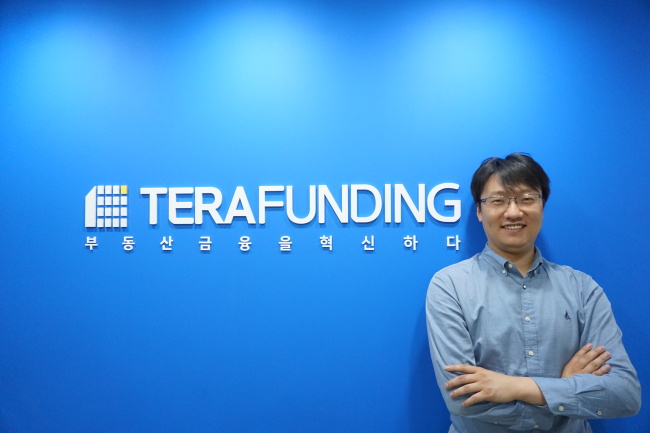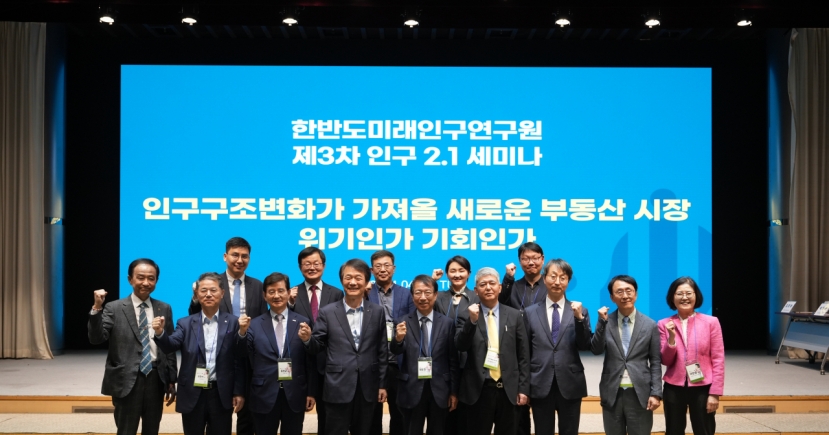Mobile & Internet
[INTERVIEW] Tera Funding sets out to hedge risks of P2P project finance
[THE INVESTOR] Since last year, South Korea’s financial watchdogs warned retail investors about crowdsourcing funds for peer-to-peer project finance, saying that their repayment capabilities could only be determined on projected cash flow without collateral.
The high return -- often at above 10 percent -- that the instrument promises to the lenders, triggered a rush into the sector, and roughly a third of loans on P2P platforms went into project financing as of September.
The rush consequently highlighted the risks of the instrument, because if the constructor fails to deliver, the P2P platform will have no collateral to use to give back the funds or profit to the investors.
As such, the default rate of the average local project financing P2P platform operators is relatively higher at 1.7 percent, over threefold that of other P2P platforms, according to a latest estimate by the Financial Services Commission.
 |
Tera Funding CEO Yang Tae-young (Tera Funding) |
But Tera Funding, the nation’s first P2P lending platform founded in 2014 and mainly devoted to financing projects for real estate development, says it has created a loan structure with a safety net and zero default.
“Obviously there is a reason why banks wouldn’t take to financing projects that carry high risks,” said Yang Tae-young, chief executive of Tera Funding, in an interview with The Korea Herald.
Tera Funding’s project finance scheme is designed so that crowdsourced funds do not finance constructors. Instead, the money will go to its subcontractors, each dealing with materials, scaffolding of a building, interior and exterior designs, among others. Constructors will get incentives for managing the subcontractors.
If a constructor goes bankrupt, what Tera Funding would do is to replace the financially troubled constructor with a new one, he added, so that subcontractors would not take heat and the construction could continue.
In other words, the scheme could “hedge risks” and prevent “an accident” from happening, he said.
“Imagine a constructor that went bankrupt and subcontractors were not paid by the constructor, even though the construction is almost complete,” the 34-year-old Yang said.
The Tera Funding platform taps into projects to build low-rise apartment buildings, locally dubbed “villa,” or studio flats, dubbed “officetel.”
Retail and institutional investors into Tera Funding could reap returns within nine months, Yang said, as it takes only around six months to complete the construction of a small residential building, plus months of administrative processes. The returns are roughly estimated 8-15 percent of investment per year, without tax deducted, depending on the risk.
Once the construction is complete, the builder will use income from apartment sales to repay principal and interest.
If the builder fails to pay up, Tera Funding will ultimately have the building auctioned off, so that the gains from the auction could reimburse the loss. The process plays a similar role with “collection of bills in case of consumer loan delinquency,” Yang said, so that neither borrowers of P2P consumer loans or P2P project financing would require a collateral.
Also, its scheme enables funds collected through Tera Funding P2P platform to become the first lien secured loans, whose creditors keep priority in being repaid.
“We would tap into projects where we take control of the construction site,” he said. “That’s how we maintain our status as a first lien secured lenders.”
The process to grade credits of builders is manual, with some 60 employees involved, he said.
There were eight loans overdue until January, according to Yang, but the lenders were able to get belated repayment from borrowers from all eight cases.
“There are many reasons why delays occur in construction, like trouble between a developer and a constructor, a complaint from those near the construction site, and many more” he said. “But once the construction is complete, it becomes much easier for a developer to take out loans from banks, so that they could repay with ease.”
Formerly a banker dedicated to mortgage loans in HSBC Korea, Yang saw a potential for high returns when auctioning properties for sale. He quit the bank and became a foreclosure freelancer until he established Tera Funding with employees with work experience in construction. But Yang realized a credit evaluation model for construction projects was nonexistent.
“There were a slew of models to evaluate credits of individuals, but a model to gauge credit grades of construction projects was nonexistent in the banking industry,” Yang said, recalling moments he had to build a model from scratch with the help of a partner firm he declined to identify.
Tera Funding topped in terms of the volume of accumulated loans among all Korean P2P lending platform operators. As of the end of January, its accumulated loans came to 264 billion won. Moreover, Tera Funding received a series A funding worth 10 billion won in January.
By Son Ji-hyoung/The Korea Herald (consnow@heraldcorp.com)




![[Exclusive] Korean military set to ban iPhones over 'security' concerns](http://res.heraldm.com/phpwas/restmb_idxmake.php?idx=151&simg=/content/image/2024/04/23/20240423050599_0.jpg)



